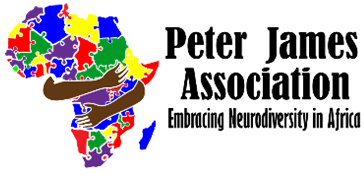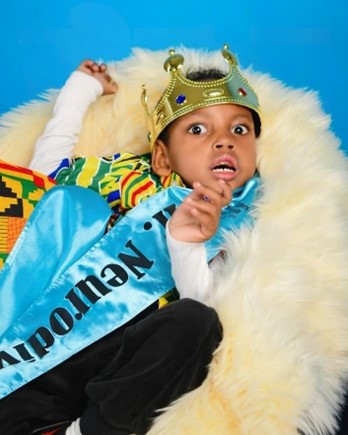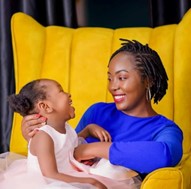Peter James Association
 Throughout Africa parents of children born with neurodiverse conditions suffer from cultural and social stigma. As a result their children also suffer from lack of respect and opportunity in society. All too often mothers are deserted and left to take care of their special children alone.
Throughout Africa parents of children born with neurodiverse conditions suffer from cultural and social stigma. As a result their children also suffer from lack of respect and opportunity in society. All too often mothers are deserted and left to take care of their special children alone.The Peter James Association was founded by two Rotarians of our club, Veronicah Kinyanjui and Gerry Tipple, and adopted as a partner organization of Rotary Club Prague International in October 2021.
The principal objectives of the association are
- To support and motivate parents by providing information and where possible, practical help
- To encourage the public exposure, acceptance and integration of children with neuro-diverse conditions into society and the provision of specialized services and better care
- To fight ignorance, prejudice and mis-information in the community
What are neurodiverse conditions?
- Autism - Autism spectrum disorder is a developmental disability that can cause significant social and behavioral challenges.
- ADHD - Attention Deficit Hyperactivity Disorder is characterized by inattentiveness, impulsivity and hyperactivity.
- Dyspraxia - Dyspraxia is a learning difference that affects how the mind processes actions, usually affecting coordination and movement.
- Dyslexia - Dyslexia is the most common neurodivergence, and most understood, usually affecting someone's ability to read or write accurately
- Cerebral Palsy - Cerebral palsy is the most common motor disability in childhood. It affects a child’s balance, ability to walk and control muscle movements and the effects can be very severe. The underlying cause is improper brain development or damage to the brain caused before, during or up to a year after childbirth.
- The Peter James Association also provides encouragement and support for children with other disabilities that have similar problems to neurodiverse children. This includes children with Down’s syndrome and epilepsy.
Our goal is to embrace neurodiverse children as part of the mainstream. And that means recognizing their special needs and providing support so they can fully participate as members of the community.
Let’s talk about diapers

For most families diapers are something you need for children until you can potty train them between 18 months and three years of age. Children with neurodiverse conditions need diapers for much longer and may not be toilet-trained even in their teenage years. This also means they need bigger diapers. Through our on-line campaign we were able to persuade Proctor & Gamble to offer a size 7 diaper for these special needs children.
For a single mother with a special needs child, as most special needs mothers unfortunately are, it is practically impossible to work full time. For those who struggle to even feed their children, diapers are a longed-for and seeming luxury. However, without a suitable diaper it is very difficult for these parents to even take a child to a doctor or to a hospital or to do simple things like go shopping, let alone go to work. This is why they are so important to this community.
Little Mr. & Miss neurodiversity
 This is an online pageant organized by the Association for neurodiverse children between the ages of 2 and 14 years. It has two main aims. The first is to create awareness of neurodiverse conditions. As the parents ask for votes they share their stories about raising their children living with disabilities the daily challenges and the needs of their children.
This is an online pageant organized by the Association for neurodiverse children between the ages of 2 and 14 years. It has two main aims. The first is to create awareness of neurodiverse conditions. As the parents ask for votes they share their stories about raising their children living with disabilities the daily challenges and the needs of their children. Secondly, the pageant is also aimed at discouraging stigma and building self confidence for children living with disabilities and their parents. Most parents of children living with disabilities shy away from exposing their children to the community because of stigma and harsh judgements.
Secondly, the pageant is also aimed at discouraging stigma and building self confidence for children living with disabilities and their parents. Most parents of children living with disabilities shy away from exposing their children to the community because of stigma and harsh judgements.When the contestants share their stories and even photos of their children, other parents with such children gather the courage to do the same. With this exposure, children living with disabilities have more chances to get help for therapies, medical support and even education leading to a better quality of life.
Link to study on autism in Kenya.
More information about the Association can be found on its Facebook pages here.
Thank you!